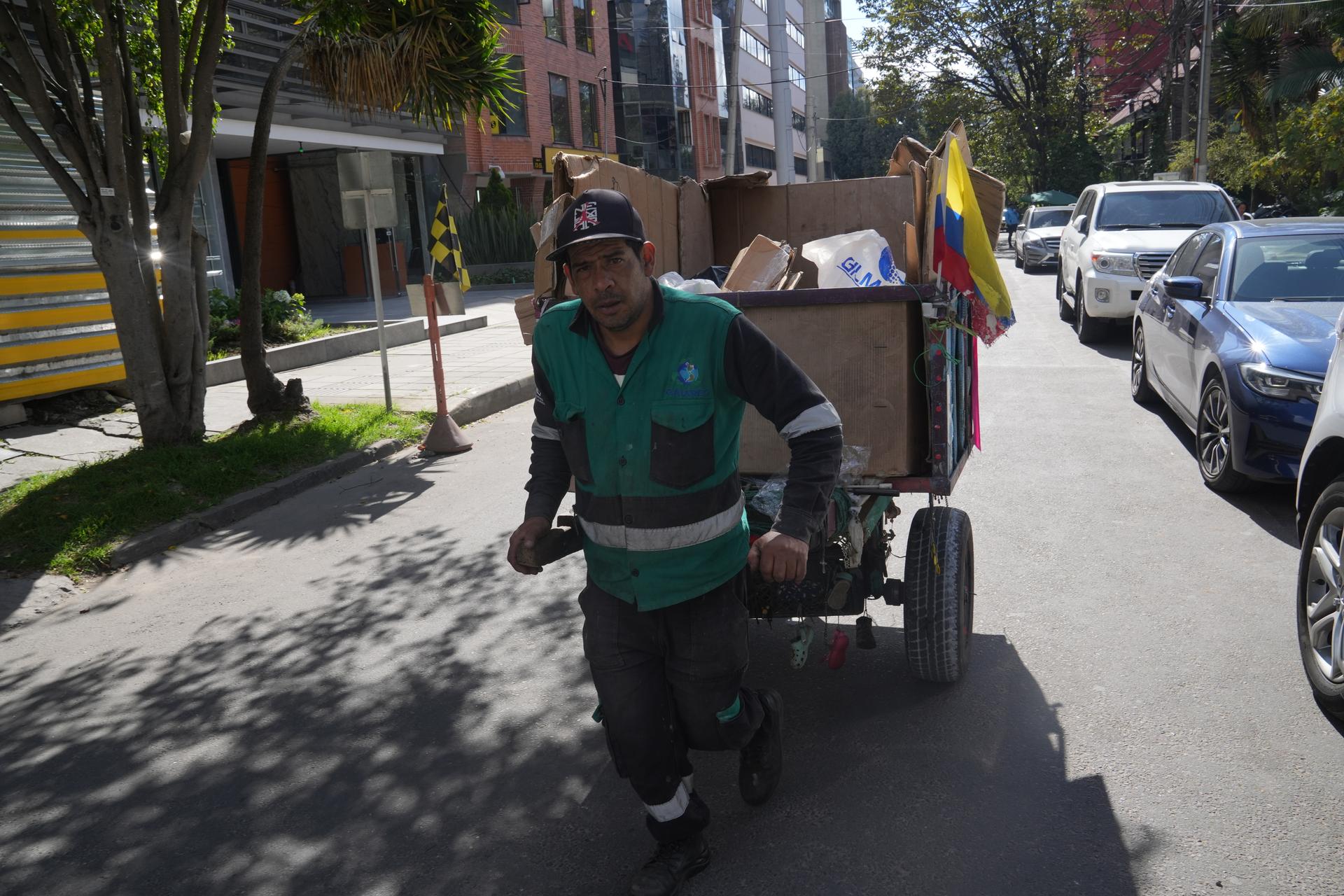Back in 1992, security guards at the Universidad Libre in the Colombian city of Barranquilla came up with a way to help the medical school — and themselves.
On quiet nights, they lured waste pickers onto campus to collect old cans and cardboard boxes — it was a trap. The guards beat them with bats, and shot them, according to court documents. Then, they sold the bodies to the medical school, where the students needed cadavers to learn on.
This went unnoticed for weeks, until one waste picker survived. After he was put in a bathtub full of formaldehyde, the man escaped and alerted the police. On March 1, as the city celebrated its annual carnival, officials found the bodies of 11 waste pickers in the university’s morgue.
“It’s something that still makes us feel pain,” said Marisol Mogollon, a waste picker in Bogotá. “Just to think that we were treated as disposable beings.”
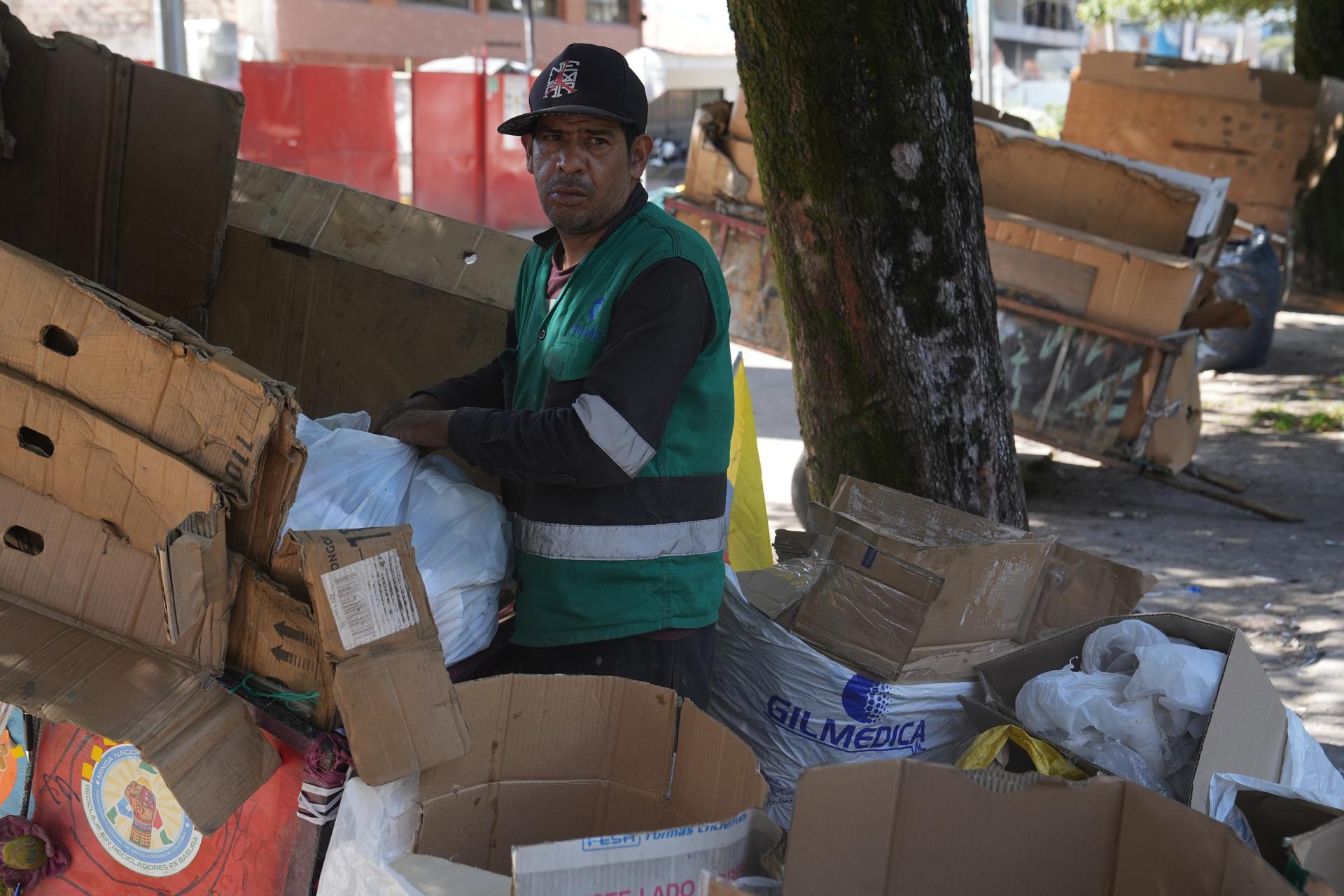
The crime shocked the nation but it also galvanized waste pickers in Colombia. They went from being one of the most marginalized groups in the country to being highly visible, fighting for their rights in the streets and in courts. Nowadays, Colombia is a global leader when it comes to granting rights to these workers, said Federico Parra, an urban anthropologist who specializes in grassroots organizations.
“This [crime] created a huge movement that impulsed the waste pickers’ organizations to fight for their rights,” he said.
Many waste pickers in Colombia are now recognized as public service providers, and they can go anywhere in the city to collect goods that can be recycled — without fear.
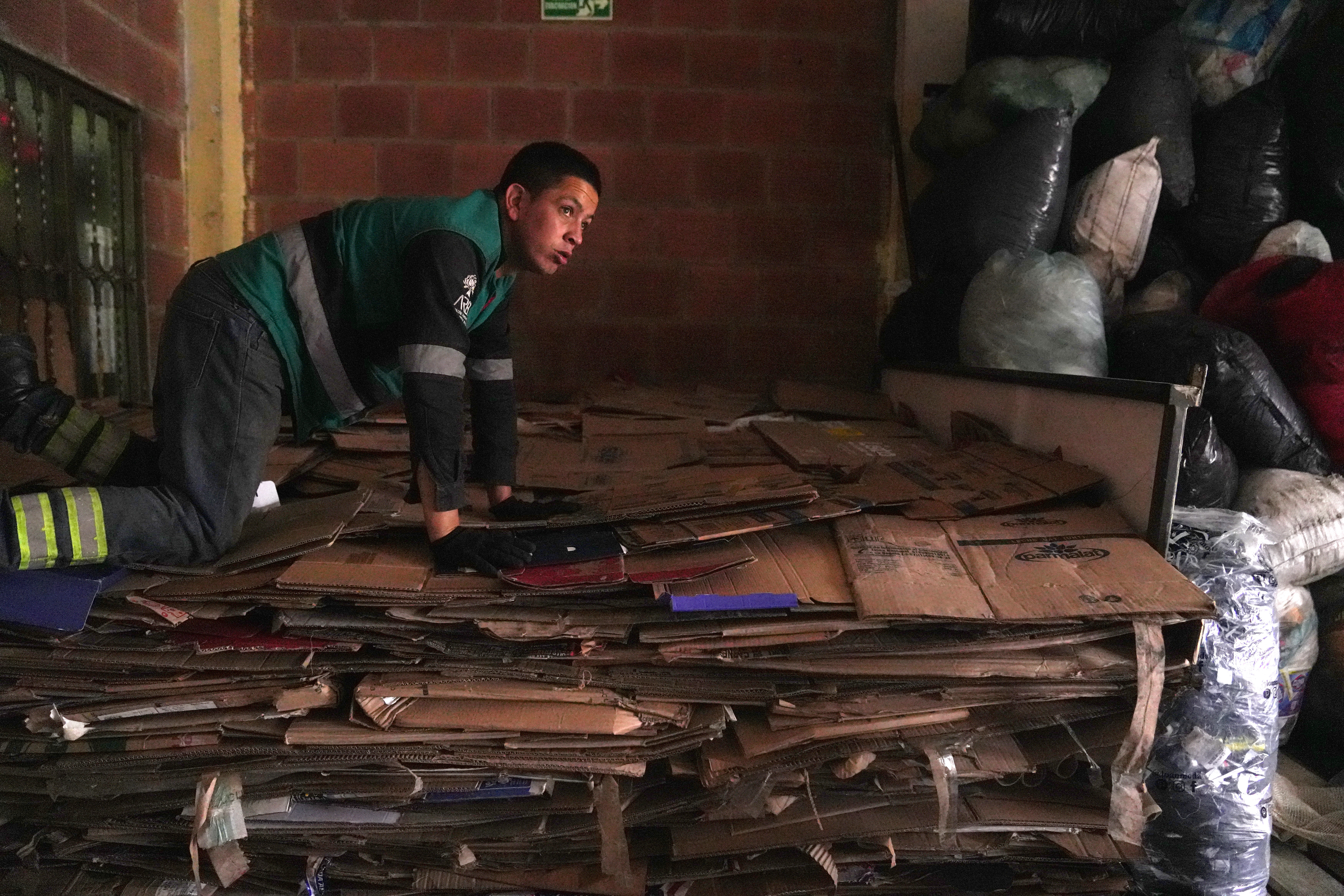
A lot of them still get around the city on foot, pulling heavy wooden carts. But they have formed associations that own trucks, and collect their trash at designated points. Previously, waste pickers had to drag their carts for several miles to get to warehouses where they sold items like cardboard, bottles and tin cans.
Alfredo Rodriguez is a waste picker in Chapinero, a wealthy district in the north of Bogotá. As he pulled his wooden cart along a street lined with office buildings and expensive apartments, he said the job still pays little, and requires long hours. But slowly, the conditions have been improving.
“We used to fight over trash bags in the street,” he said. “Now, it’s more orderly, and we also get gloves, face masks and boots with steel tips.”
In Colombia, waste pickers have filed several lawsuits against city governments that have privatized waste collection and given some recycling responsibilities to government contractors.
In 2011, the nation’s Constitutional Court ruled that municipal governments had to take actions to protect waste pickers, because they are a vulnerable group that provides an important service.
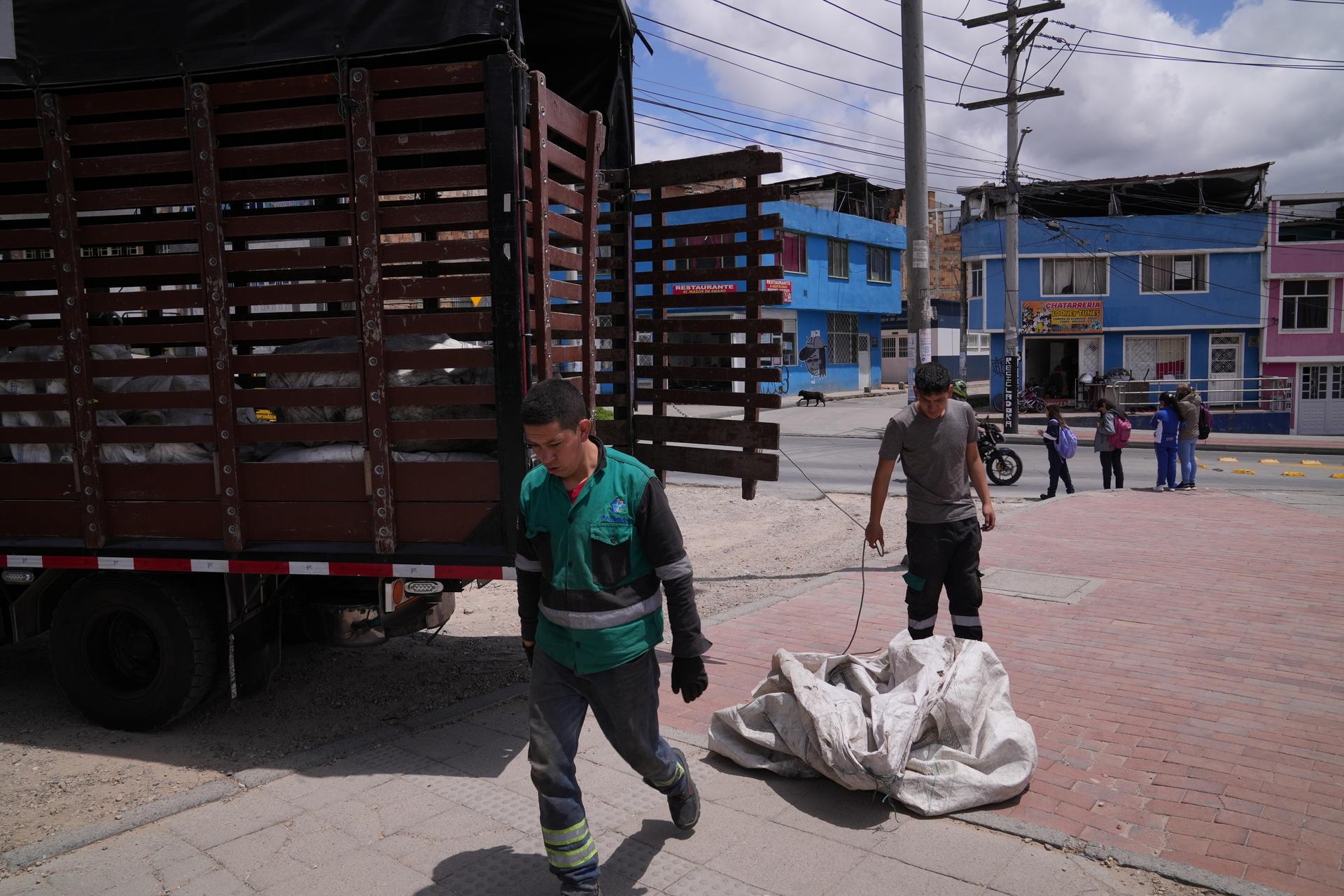
Following that groundbreaking ruling, cities like Bogotá have begun to require that contractors pay waste pickers a portion of the funds that they get from waste management taxes.
So, in Bogotá, waste pickers don’t just get paid for what they sell to warehouses each day. They also get a monthly fee that comes from the waste management tax. It’s known as the tarifa.
“We get anywhere from $30 to $90 from the tarifa, depending on how much [trash] we gathered,” said Sandra Martinez, a waste picker in Usme, a district at the southern edge of Bogotá. “It’s not much, but it helps to pay the bills.”
At the end of the month, waste pickers’ associations also get paid a fee, which varies according to how many tons their members collect.
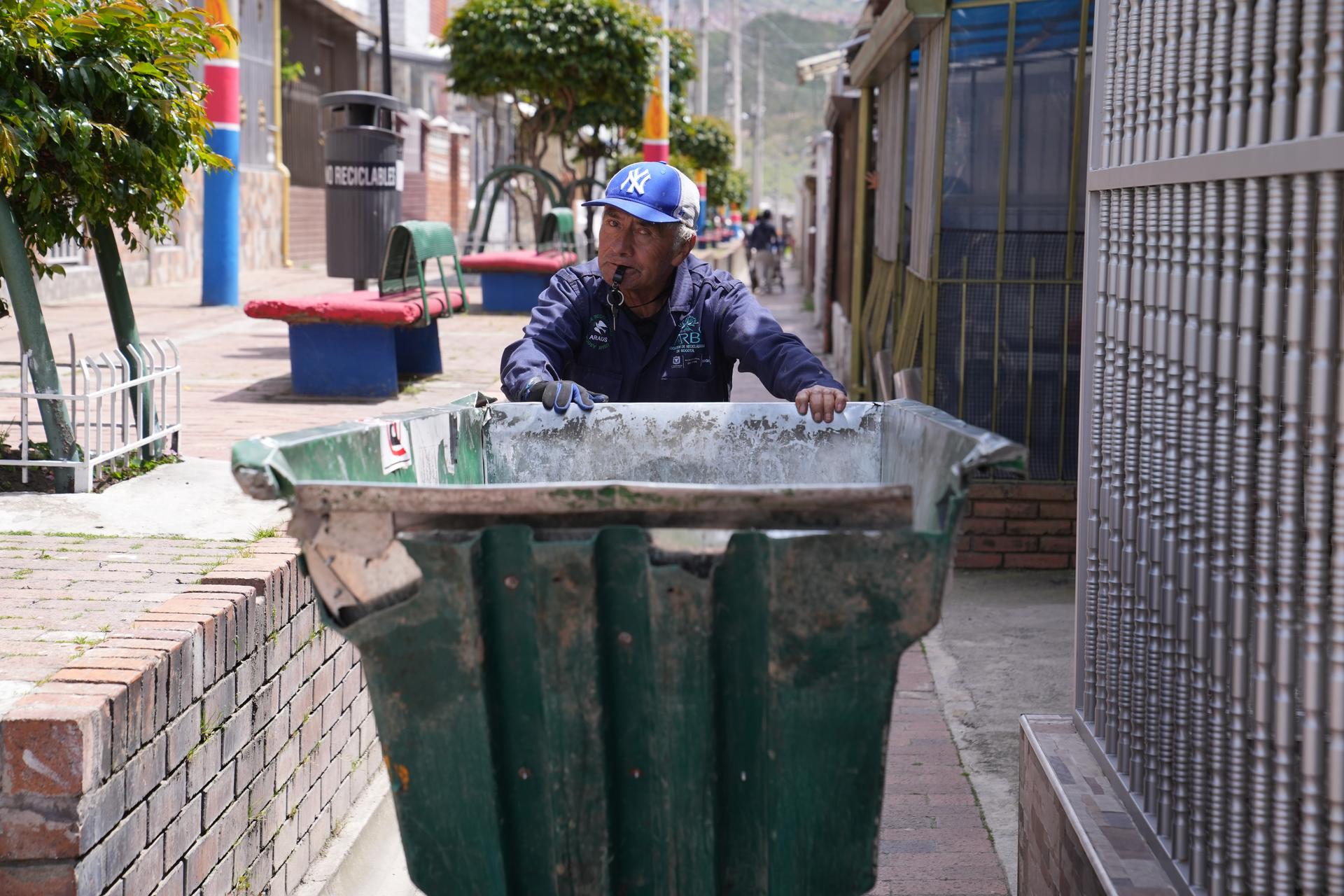
Jorge Ospina directs ARAUS, the waste pickers association in Bogotá’s Usme district. His association has 75 members and gets about $5,000 a month from local taxes.
“Thanks to the tariff, our association has enough money to rent three warehouses, and we’ve also bought a truck.” he said.
At one of the warehouses, two employees stripped labels away from hundreds of plastic bottles, so that they could sell them to a local recycling plant.
Thanks to the warehouse, there’s no longer any need to sell trash to middle men. And the association’s members can get better prices for what they collect.
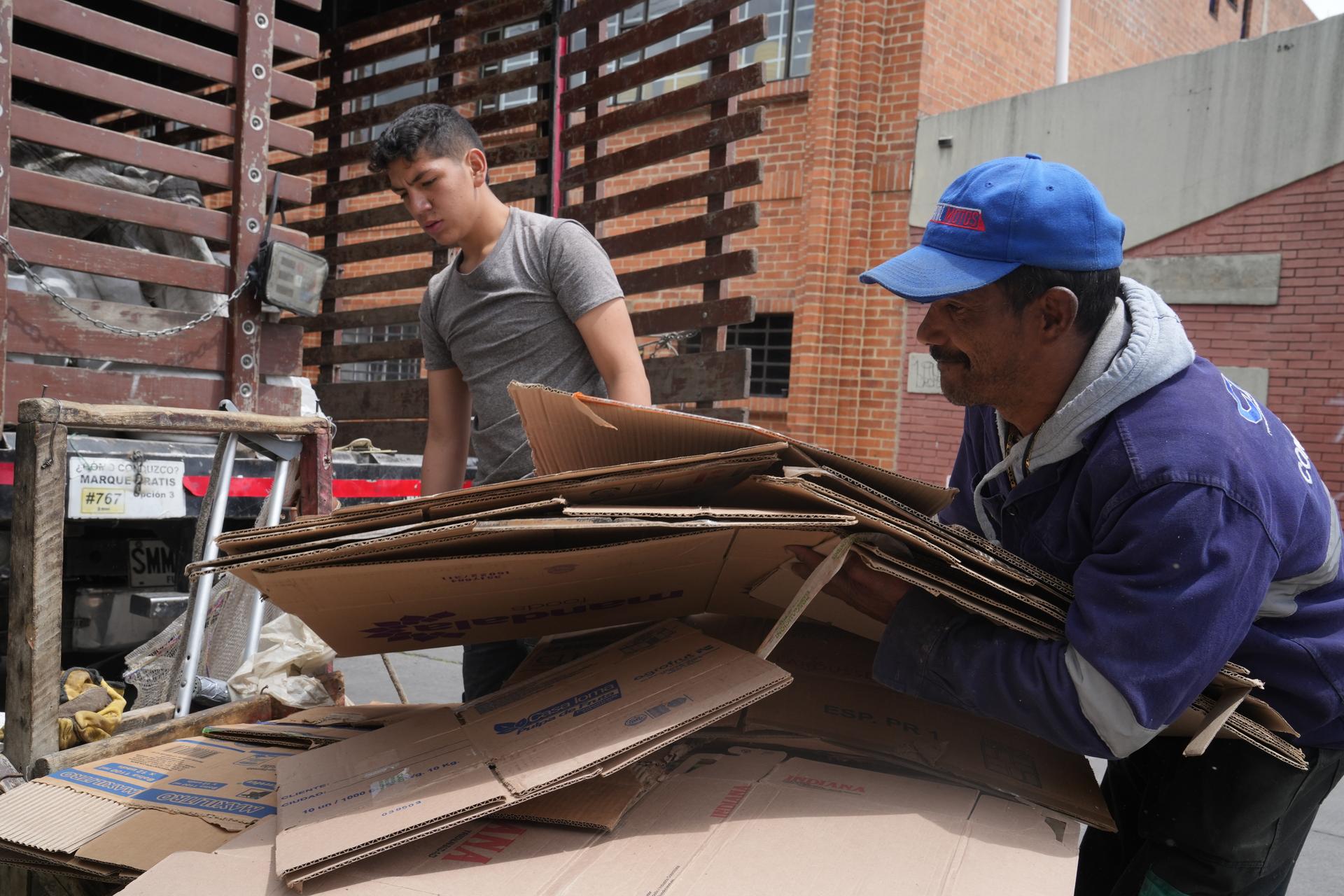
But waste pickers in the city still face many challenges. Prices for some items, like cardboard, have fallen recently. And for some waste pickers it’s also become harder to gather decent amounts of trash.
Martinez said many Venezuelan migrants who are out of work are also roaming the streets of Bogotá looking for items that can be sold to recycling plants.
“They open the trash bags before we can get to them,” she said. “And with the economic crisis, even homeowners are holding on to stuff, and selling it themselves to warehouses.”
But the biggest challenge for Bogotá’s waste pickers are large contractors that are also trying to get a piece of the recycling business.
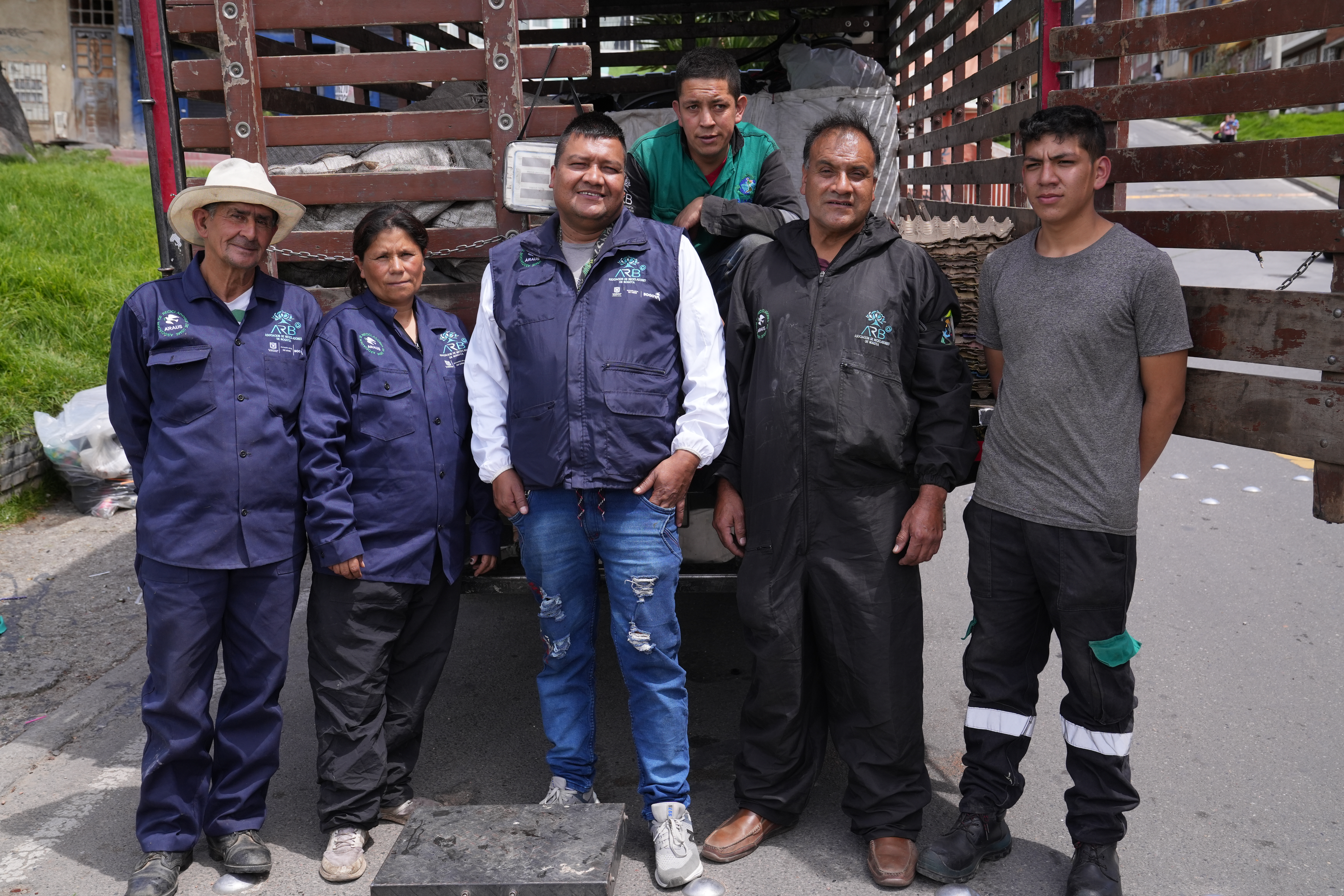
Ospina, from the ARAUS association, said that some of these companies have even formed dubious associations that are trying to claim some of the monthly payments that are reserved for waste pickers.
“Before the tariff system began, we only had around 40 waste pickers’ associations in Bogotá,” he said. “But now, there are 450. The city government has to eliminate the fake organizations, so that only the authentic waste pickers benefit from the monthly payments.”
Still, for many waste pickers in Bogotá, like Martinez, this is an industry that has changed for the better, even if these transformations were sparked by a horrible set of murders.
“Our job has more recognition now,” she said. “We used to be perceived as junkies, or disposable people. But now, our role in the city is respected.”
Listen to the other stories in the four-part Waste Pickers series on The World:
Trash sorters in Ghana face health and safety risks
In Mumbai, waste pickers do the heavy lifting of recycling
Tokyo’s trash-collecting samurai takes a fun, zany approach to cleanup
